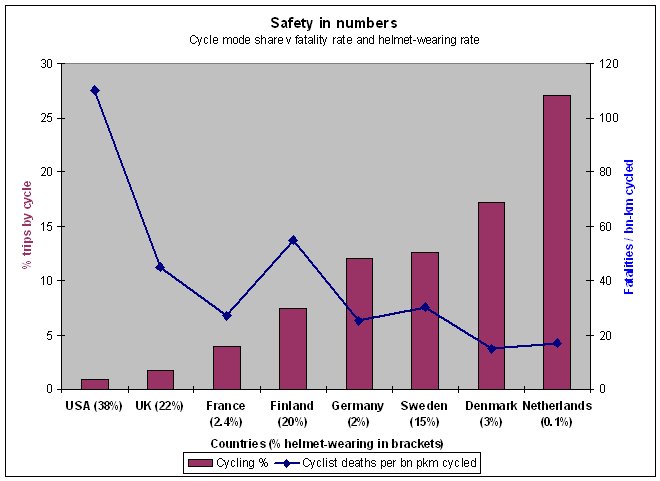Hi Tony, I'm glad you've been busy. I was away in the South of France for a while - work, as it happens, so I was busy too.The delay in this response was due to 4 days being necessary to gather the necessary information as you'll see.
I am actually quite prepared to believe the proposition that the "helmet saved my life" claims are over reported. But its the explanation that really interests me. The idea of people believing things that are demonstrably untrue has to be interesting.
One of the first things is to establish how large the over reporting is. Is it, say, 10 times, or 10,000 times? The explanations we would look for would be different in each case. To be honest, it would be difficult to stretch the extra recklessness case to account for more than a few times, so pinning down the amount of over reporting strikes me as an essential step in any discussion. I had a stab at estimating the general level and, using the set of data in front of me, concluded it wasn't much. You've suggested a revision that puts it up by a factor of 3 and I accept that.
There are standard traps (or opportunities, depending on your aim) with statistics. You can be selective with the data, you can choose an arbitrary reference sample, etc, etc. There is a saying that, if all else fails, torture the data until it tells you what you want. With respect, Tony, I think you've done all of these things.
I'm not saying any of the numbers bandied around are wrong, just that the case isn't proven.
As I said, it would be extremely interesting to try to work out the reasons for over reporting, but there's no point without some quality data to start with, and that's looking difficult.
Nick









